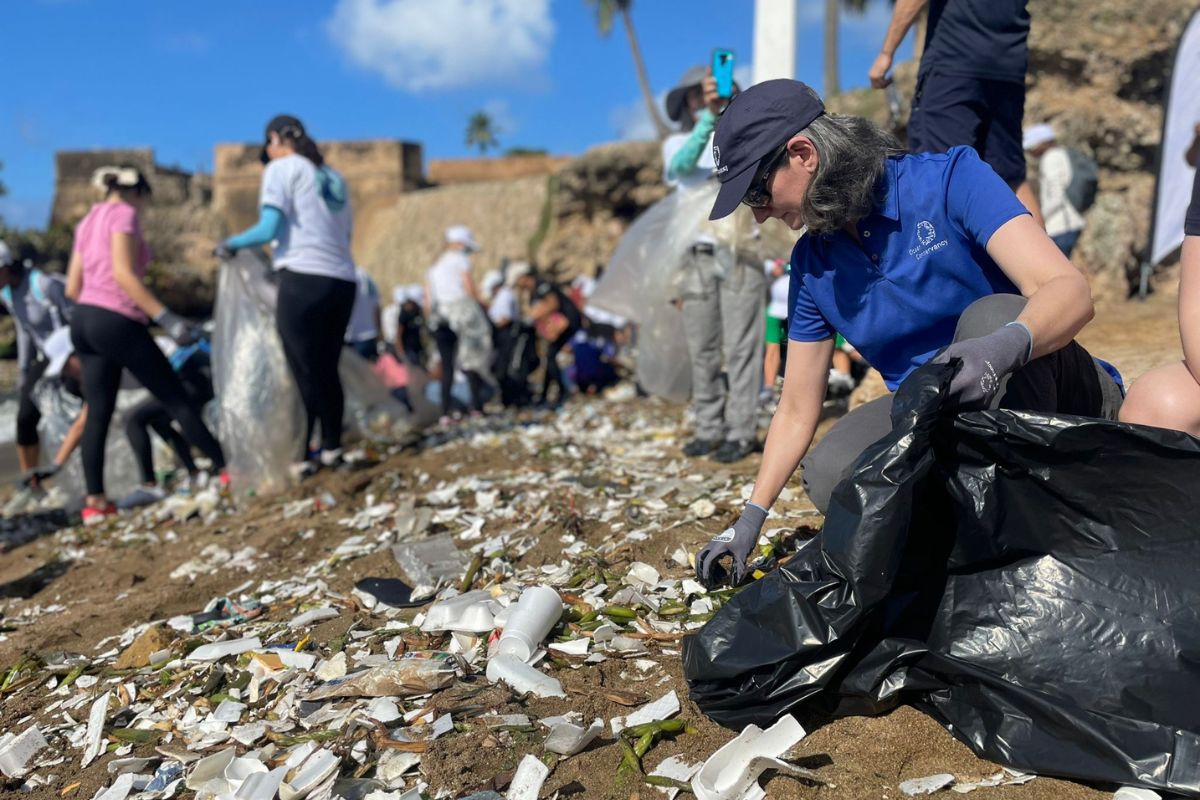
In addition to its proposed ban on EPS packaging, Ocean Conservancy wants to ensure banned items aren’t simply replaced by other single-use plastic items. | Courtesy of Ocean Conservancy
As it kicks off its 38th International Coastal Cleanup, environmental group Ocean Conservancy is calling for a nationwide ban on expanded polystyrene foodservice packaging.
The group recently published a report and announced a campaign called “What The Foam,” which aims to push U.S. lawmakers to impose a national ban on foam foodware. The report noted that 11 states and Washington, D.C. will have foam bans in place in the next few years, not including bans that have already been imposed by local governments.
“It’s time to say farewell to foam once and for all,” Dr. Anja Brandon, associate director of U.S. plastics policy at Ocean Conservancy, stated in a press release. “At the same time, we need to make sure we’re not just replacing these materials with other non-recyclable single-use plastic items. Banning plastic foam is a great first step, but it must be coupled with investments in reusable programs, as well as upstream redesign standards to ensure that all the products and packaging we use are actually reusable or recyclable.”
The report was released as the Washington, D.C.-based group launches its 38th International Coastal Cleanup (ICC), which begins this month.
According to Ocean Conservancy, PS foam containers – including cups, plates and clamshells – were the seventh most common litter type removed from shorelines during the 2022 ICC. Volunteers around the world collected 15.5 million pieces of litter during the 2022 ICC. That number included over 463,000 foam food containers. The ranking was the highest since Ocean Conservancy started tracking the material as a standalone category a decade ago, the release notes.
In terms of regional trends, foam food containers made the top 5 in the Caribbean, where they were the second most-collected type of litter.
In the U.S., foam food containers were not among the top 10 items, the report showed. Of the 3.39 million individual pieces of litter recovered, over 19,600 were foam food containers.

